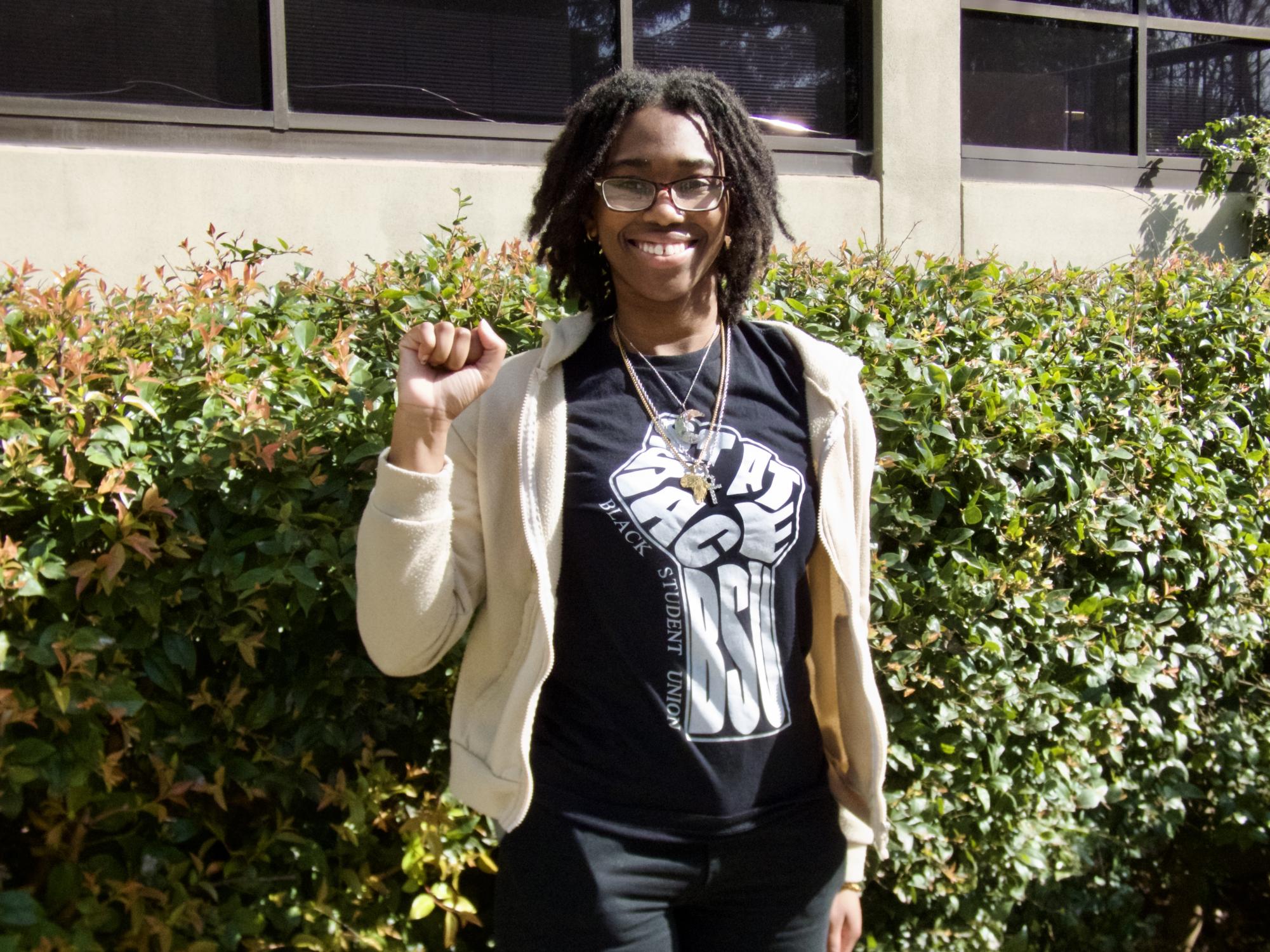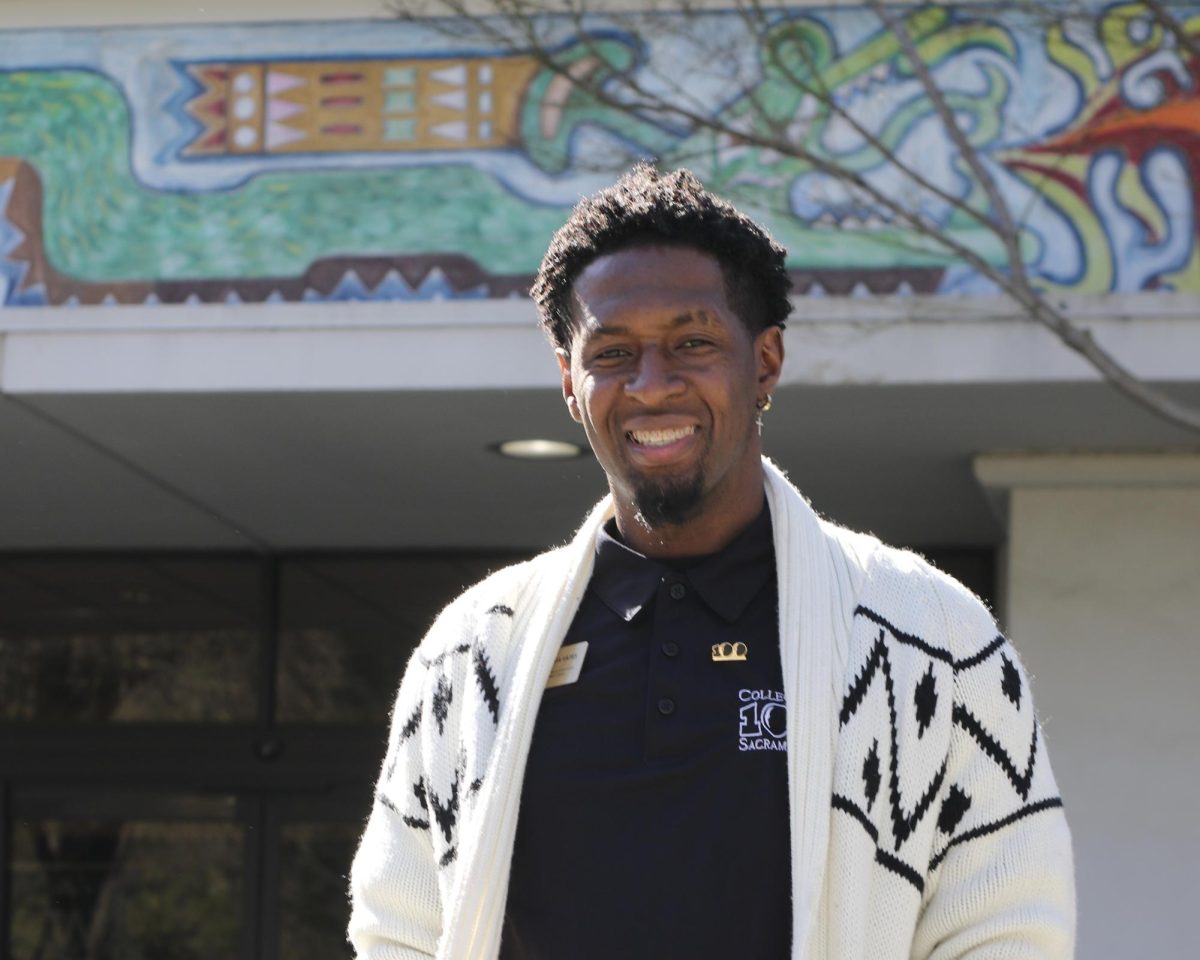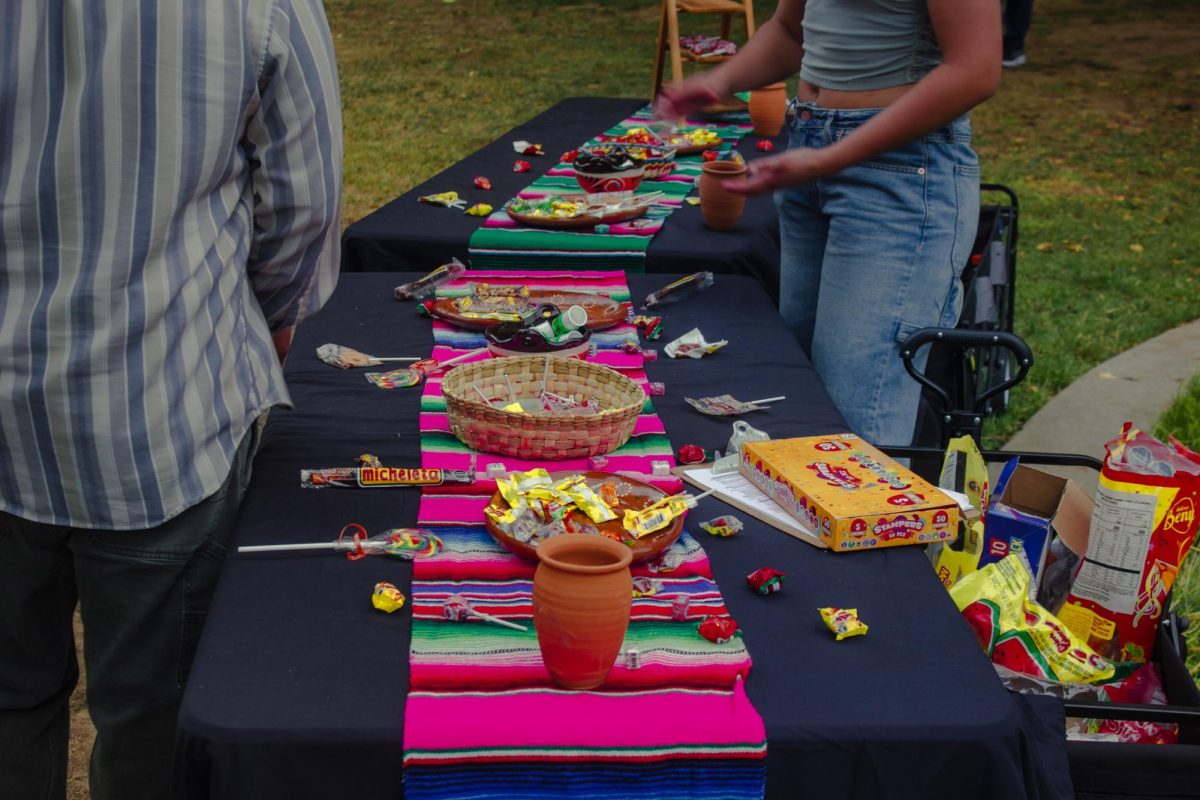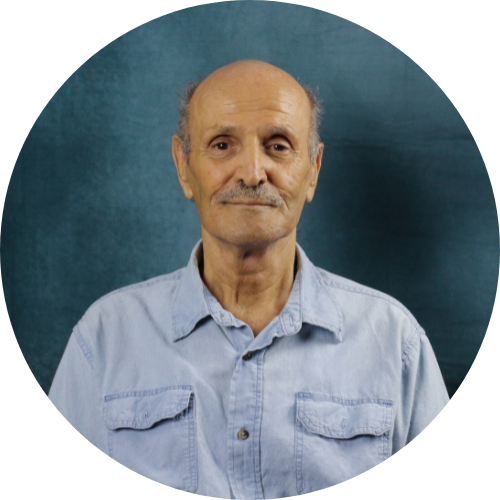The Cooper-Woodson College Enhancement Program at Sacramento State connects Black students to their Pan-African roots by cultivating community through lectures, seminars and events.
By connecting Black students with mentors, academic resources and faculty the college provides Sac State students a well-supported experience from start to finish.
The Cooper-Woodson College Enhancement Program at Sac State was created by Pan-African studies faculty members Otis Scott, Chris Glen and David Covin in 1990, as a Pan-African Student Retention program aimed at educational equity for Black students.
Martin Boston, an assistant professor in Pan-African studies and ethnic studies, said Scott’s goal for the Cooper-Woodson College was to create a retention program centering around Pan-African studies and community service to give Black students a sense of belonging at Sac State.
“Pan-Africanism speaks to more of a shared goal, a shared existence, a shared path forward,” Boston said.
Boston said the goal of the college was to build a cohort from different economic backgrounds who would work together to complete their degrees and futures after college.
Kaifa Yates, a program coordinator at the Martin Luther King Jr. Center and a Cooper-Woodson College mentor, said by offering mentors, academic resources, workshops and support the college helps with the retention and graduation rates of Sac State students.
“It could be financial wellness, we teach students how to budget and how to manage their money,” Yates said. “We have mental wellness workshops. We talk about stress, anxiety and how to manage that.”
Aiding in the college experience students are offered academic tutoring services and a peer counselor to talk to in the MLK Center on Tuesdays and Thursdays from 11 a.m. to 1 p.m.
Seeing himself as a part of their community, Yates said that if a student needs help and does not have the answer then he will reach out to someone who does and can help support and guide the student.
“My thing is just really listening, listening to these students, hearing their stories,” Yates said. “Where they came from, what culture they’re from. Really learning who they are as a person and then seeing how I can incorporate and help them.”
Cooper-Woodson College also gives back by volunteering with the Roberts Family Development Center on their annual food drive, creating and distributing hygiene drop packages that include body wash, clothes and socks for people without housing.
Mikayla Ray, a senior communications major and a mentee of the program said that she joined because she loves mentor programs.
“I gravitate toward people who are more experienced or smarter than me,” Ray said. “I want to be exposed to what I don’t know.”
Ray said she appreciates the relationship with her mentor because it’s not just academic-based, they discuss not only her progress in school but her well-being and everything she needs for her son and her to succeed.
RELATED: A photographer’s goal of changing the world one snapshot at a time
Sabrina Charleston, a third-year psychology major who works as a community liaison, recruitment lead and mentee for the college has participated since her freshman year.

“I saw the benefits of it,” Charleston said. “There was an opportunity for me to work for CWC and to give back to the community with time in the different organizations here on campus.”
CWC strives for a sense of family, especially for students who are not from the area, by hosting many events outside of normal class hours and on weekends for students to attend.
Charleston said being a part of the college, having an administrative role in the Black Student Union and working in the MLK Center allows her to contribute to the enhancement of the Black population on campus.
“Since I am the community liaison for CWC, I feel like that ties my role, it broadens my role even more because I am actively being a community liaison having put myself into those positions at MLK and BSU,” Charleston said.
For Charleston, the CWC is essentially about prioritizing Black students’ overall well-being and ensuring they’ve worked on themselves before bettering their environment.
“Giving back to your community, helping out your fellow peers around you and within the Black community, I think that is highly important,” Charleston said.
The college also hosts cultural events and workshops for students in the program to explore their identities such as the Pan-African graduation and the program’s study abroad trip Return to Kemet where students travel to Egypt.
“It’s a home away from home, this is your space,” Yates said.



























































































































